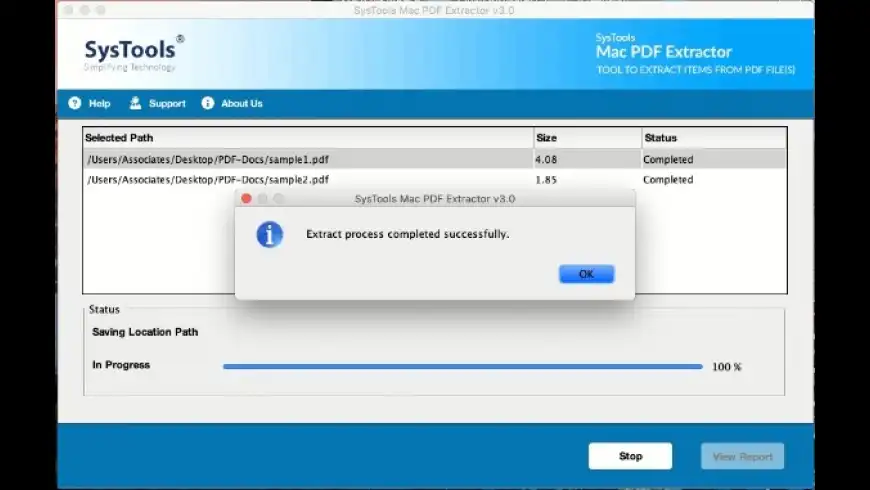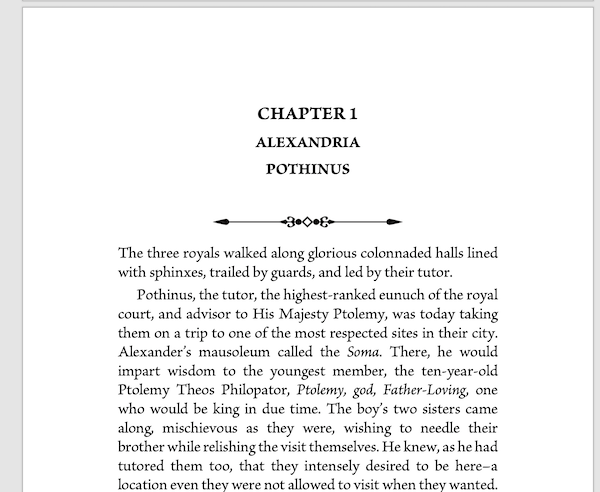The Will to Power (German: Der Wille zur Macht) is a book of notes drawn from the literary remains (or Nachlass) of philosopher Friedrich Nietzsche by his sister Elisabeth Förster-Nietzsche and Heinrich Köselitz ('Peter Gast'). The Will to Power is also the title of a work that Nietzsche himself had considered writing. The work was first translated into English by Anthony M. Ludovici in 1910, and it has since seen several other translations and publications.[citation needed]
Background
After Nietzsche’s breakdown in 1889, and the passing of control over his literary estate to his sister Elisabeth Förster-Nietzsche, Nietzsche’s friend Heinrich Köselitz conceived the notion of publishing selections from his notebooks, using one of Nietzsche's simpler outlines as a guide to their arrangement. As he explained to Elisabeth on November 8, 1893:
The Will to Power (manuscript) Colli and Montinari research While researching materials for the Italian translation of Nietzsche's complete works in the 1960s, philologists Giorgio Colli and Mazzino Montinari decided to go to the Archives in Leipzig to work with the original documents. The gospel is a message of God’s power. Human wisdom is useless for salvation. Only God’s power can set us free from our bondage to sin and death, changing us to faithful disciples of Jesus. Paul’s message touched their hearts and brought a change within that no man could ever hope to bring to the broken soul. And compact size. In rural India, the availability of power. Manuscript received March 30, 2019; revised March 14, 2020. Is low and the load connected is around 300W. So the proposed BLDC motor power output was fixed at 200W and the power input was limited to 250W. This paper contributes the efficiency and loss analysis of the existing. Pulling from real-world experience in management consulting and finance, this short and simple book is great for Excel users–whether you are a student, professional, analyst, or an exec that dabbles with lots of numbers. BUY ON AMAZON $4.99. Separation Of Concerns. Real-World Instances.
- Given that the original title appears as: The Antichrist. Revaluation of All Values (and therefore not ‘The first book of the revaluation of all values’), you may think that your brother at the time of his incipient madness, thought the book completed. [. . .] Notwithstanding, the consequences of this revaluation must also be explicitly illustrated in the field of morality, philosophy, politics. No one today is able to imagine such consequences — that’s why the vast preparations by your brother, the other three books of the Revaluation, must be ordered according to my suggestion and gathered in a kind of system.[1]
Between 1894 and 1926, Elisabeth arranged the publication of the twenty volume Großoktavausgabe edition of Nietzsche's writings by C. G. Naumann. In it, following Köselitz' suggestion she included a selection from Nietzsche's posthumous fragments, which was gathered together and entitled The Will To Power. She claimed that this text was substantially the magnum opus, which Nietzsche had hoped to write and name 'The Will to Power, An Attempt at a Revaluation of All Values'. The first German edition, containing 483 sections, published in 1901, was edited by Köselitz, Ernst Horneffer, and August Horneffer, under Elisabeth's direction. This version was superseded in 1906 by an expanded second edition containing 1067 sections. This later compilation is what has come to be commonly known as The Will to Power.
Colli and Montinari research
While researching materials for the Italian translation of Nietzsche's complete works in the 1960s, philologistsGiorgio Colli and Mazzino Montinari decided to go to the Archives in Leipzig to work with the original documents. From their work emerged the first complete and chronological edition of Nietzsche's writings, including the posthumous fragments from which Förster-Nietzsche had assembled The Will To Power. The complete works comprise 5,000 pages, compared to the 3,500 pages of the Großoktavausgabe. In 1964, during the International Colloquium on Nietzsche in Paris, Colli and Montinari met Karl Löwith, who would put them in contact with Heinz Wenzel, editor for Walter de Gruyter's publishing house. Heinz Wenzel would buy the rights of the complete works of Colli and Montinari (33 volumes in German) after the French Gallimard edition and the Italian Adelphi editions.
Before Colli and Montinari's philological work, the previous editions led readers to believe that Nietzsche had organized all his work toward a final structured opus called The Will to Power. In fact, if Nietzsche did consider producing such a book, he had abandoned such plans in the months before his collapse. The title of The Will to Power, which appears for the first time at the end of the summer of 1885, was replaced by another plan at the end of August 1888. This new plan was titled 'Attempt at a revaluation of all values' [Versuch einer Umwerthung aller Werthe],[2] and ordered the multiple fragments in a completely different way than the one chosen by Elisabeth Förster-Nietzsche.
Mazzino Montinari and Giorgio Colli have called The Will to Power a 'historic forgery' artificially assembled by Nietzsche's sister and Peter Gast.[citation needed] Although Nietzsche had in 1886 announced (at the end of On the Genealogy of Morals) a new work with the title, The Will to Power: An Attempt at a Revaluation of All Values, the project under this title was set aside and some of its draft materials used to compose The Twilight of the Idols and The Antichrist (both written in 1888); the latter was for a time represented as the first part of a new four-part magnum opus, which inherited the subtitle Revaluation of All Values from the earlier project as its new title.[3] Although Elisabeth Förster called The Will to Power Nietzsche's unedited magnum opus, in light of Nietzsche's collapse, his intentions for the material he had not by that time put to use in The Twilight of the Idols and The Antichrist are simply unknowable. So The Will to Power was not a text completed by Nietzsche, but rather an anthology of selections from his notebooks misrepresented as if it were something more. Nevertheless, the concept remains, and has, since the reading of Karl Löwith, been identified as a key component of Nietzsche's philosophy, so much so that Heidegger, under Löwith's influence, considered it to form, with the thought of the eternal recurrence, the basis of his thought.
In fact, according to Montinari, not only did the Will To Power impose its own order on the fragments, but many individual fragments were themselves cut up or stitched together in ways not made clear to the reader. Gilles Deleuze himself saluted Montinari's work declaring:
- As long as it was not possible for the most serious researcher to accede to the whole of Nietzsche's manuscripts, we knew only in a loose way that the Will to Power did not exist as such (...) We wish only now that the new dawn brought on by this previously unpublished work will be the sign of a return to Nietzsche.[4]

Drawing on this research for support, Montinari also called into question the very conception of a Nietzschean magnum opus, given his style of writing and thinking.[5]


English translations
'Der Wille zur Macht' was first translated into English by Anthony M. Ludovici in 1910, and was published in Oscar Levy's edition of Nietzsche's papers. The introduction of the most recent edition by Walter Kaufmann and R. J. Hollingdale offers both praise and criticism for Ludovici's edition, saying that, 'Dr. Levy was probably quite right when in a prefatory note he called Ludovici 'the most gifted and conscientious of my collaborators,' but unfortunately this does not mean that Ludovici's translations are roughly reliable....Let us say that Ludovici was not a philosopher, and let it go at that.'

Manuscript Central Power Electronics
- Friedrich Nietzsche (1910). 'The will to power. An attempted transvaluation of all values. Books one and two'. In Oscar Levy (ed.). The complete works of Friedrich Nietzsche. 14. Edinburgh and London: T.N. Foulis.<templatestyles src='Module:Citation/CS1/styles.css'></templatestyles> (Revised third edition 1925, published by The Macmillan Company)
- Friedrich Nietzsche (1910). 'The will to power. An attempted transvaluation of all values. Books three and four'. In Oscar Levy (ed.). The complete works of Friedrich Nietzsche. 15. Edinburgh and London: T.N. Foulis.<templatestyles src='Module:Citation/CS1/styles.css'></templatestyles> (First edition.)
Another translation was published by Kaufmann with Hollingdale in 1968:
- Friedrich Nietzsche (1968). The Will to Power: In Science, Nature, Society and Art. Random House. ISBN0-394-70437-1.<templatestyles src='Module:Citation/CS1/styles.css'></templatestyles>
Editions
- Der Wille zur Macht. Versuch einer Umwerthung aller Werthe (Studien und Fragmente), 1901 (as part of Nachgelassene Werke), ed. by Ernst Horneffer, August Horneffer and 'Peter Gast', with a foreword by Elisabeth Förster-Nietzsche, publ. C. G. Naumann, (usual abbreviation: ¹WM)
- Der Wille zur Macht, 1906, ed. by Elisabeth Förster-Nietzsche and 'Peter Gast' (usual abbreviation: ²WM)
- Der Wille zur Macht: eine Auslegung alles Geschehens, 1917, ed. by Max Brahn
- Der Wille zur Macht, 1922[1911] (15th volume of Nachgelassene Werk), publ. A. Kröner [3]
- Der Wille zur Macht, 1926[1922] (19th volume of Gesammelte Werke: Musarionausgabe), ed. by Richard Oehler, Max Oehler, and Friedrich Würzbach[4][5]
- Der Wille zur Macht, 1930 (as part of Werke in zwei Bänden), ed. by August Messer
- La Volonté de Puissance, 1935, ed. by Friedrich Würzbach (Gallimard)
- Digitale Kritische Gesamtausgabe Werke und Briefe – digital critical edition of the complete works, posthumous fragments, and letters, based on the critical text by Colli and Montinari, edited by Paolo D’Iorio, Paris, Nietzsche Source, 2009–
See also
Manuscript Transaction Power System
References
- ↑David Marc Hoffmann, Zur Geschichte des Nietzsche-Archives. Chronik, Studien und Dokumente, Berlin-New York, De Gruyter, 1991, p. 15.
- ↑This sub–title appeared on the title page of the first edition, called the Großoktav. It appeared in 1901 in volume XV of Nietzsche's Werke. A transcription is displayed in Walter Kaufmann's English translation of The Will to Power, Vintage, 1968, page xxvii.
- ↑Mazzino Montinari, Nietzsche-studien: Internationales Jahrbuch Für Die Nietzsche-Forschung, 1974.
- ↑Deleuze: 'Tant qu'il ne fut pas possible aux chercheurs les plus sérieux d'accéder à l'ensemble des manuscrits de Nietzsche, on savait seulement de façon vague que La Volonté de puissance n'existait pas comme telle (...) Nous souhaitons que le jour nouveau, apporté par les inédits, soit celui du retour à Nietzsche in Mazzino Montinari and Paolo D'Iorio, 'The Will to Power' does not exist' [1]
- ↑Mazzino Montinari and Paolo d'Iorio, 'The Will to Power' does not exist' [2] Mazzino Montinari, « La volonté de puissance » n’existe pas, texte établi et postfacé par Paolo D’Iorio, traduit de l’italien par Patricia Farazzi et Michel Valensi, Paris, Éditions de l’éclat, 1996, 192 p.
External links
- Der 'Wille zur Macht' – kein Buch von Friedrich Nietzsche, a selection of texts from Nietzsche's estate related to his philosophical concept and book projects 'Wille zur Macht' ('Will to Power'), edited by Bernd Jung based on the Digital Critical Edition of Nietzsche’s Works, 2012/13
- 'Nietzsche's Notebook of 1887–1888'. English translation and notes by Daniel Fidel Ferrer (June 2012).
- 'Nietzsche's Last Notebooks 1888'. These are his notebooks from the year 1888 up to early January 1889. Nietzsche stopped writing entirely after January 6, 1889. English translation and notes by Daniel Fidel Ferrer (June 2012).
